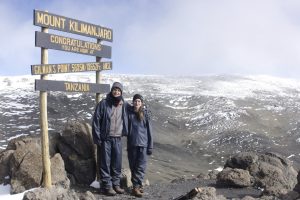Guide to Solo Climbing Kilimanjaro
Essential Tips for Solo Climbing Kilimanjaro
Climbing Mount Kilimanjaro is a once-in-a-lifetime experience that many outdoor enthusiasts dream of. While most people choose to join organized group tours, solo climbing Kilimanjaro can be a rewarding and challenging adventure for those looking for a more personal and intimate experience. However, solo climbing Kilimanjaro comes with its own set of challenges and risks, so it is essential to be well-prepared. Here are some essential tips for solo climbers tackling Kilimanjaro:
-
Physical Fitness: Climbing Kilimanjaro is a strenuous activity that requires a good level of physical fitness. It is important to train and prepare your body for the physical demands of the climb. Incorporate cardio, strength training, and hiking into your fitness routine to ensure you are adequately prepared.
-
Acclimatization: Altitude sickness is a common concern when climbing Kilimanjaro. It is crucial to allow your body to acclimatize to the high altitude to reduce the risk of altitude-related illnesses. Take your time and listen to your body as you ascend the mountain.
-
Pack Light: When solo climbing Kilimanjaro, you will be responsible for carrying all your gear and supplies. Pack light and only bring the essentials to reduce the weight of your backpack. Opt for high-quality, lightweight gear to make the climb more manageable.
-
Emergency Communication: As a solo climber, it is important to have a reliable means of communication in case of emergencies. Carry a satellite phone or a personal locator beacon to ensure you can call for help if needed.
-
Stay Hydrated and Fueled: Proper hydration and nutrition are essential when climbing Kilimanjaro. Drink plenty of water and eat high-energy foods to fuel your body for the challenging ascent.
Planning Your Expedition: A Comprehensive Guide
When planning a solo climbing expedition to Kilimanjaro, thorough preparation is key to a successful and safe climb. Here is a comprehensive guide to help you plan your solo expedition:
-
Choose a Reputable Tour Operator: While you may be climbing solo, it is recommended to book your expedition with a reputable tour operator like Sunset Africa Safari. They can provide essential support, guides, and logistics to ensure a smooth and safe climb.
-
Obtain Permits: Climbing Kilimanjaro requires permits, which can be obtained through the Tanzania National Parks Authority. Make sure to secure your permits in advance to avoid any issues on the day of your climb.
-
Pack Wisely: Make a detailed packing list and ensure you have all the necessary gear and supplies for your expedition. Don’t forget essentials like warm clothing, a sturdy backpack, hiking boots, and a sleeping bag.
-
Train and Prepare: In the months leading up to your climb, focus on building your physical fitness and endurance. Take practice hikes and simulate high-altitude conditions to prepare your body for the challenges ahead.
-
Stay Informed: Keep yourself informed about the weather conditions, route options, and safety precautions for climbing Kilimanjaro. Stay updated on any changes or regulations that may affect your climb.
Solo climbing Kilimanjaro is a unique and unforgettable adventure that requires careful planning and preparation. By following these essential tips and utilizing the comprehensive guide provided, you can embark on a successful and rewarding solo expedition to the Roof of Africa. For booking requests and more information, contact Sunset Africa Safari at info@sunsetafricasafari.com.



